Affordable Housing in the Suburbs: Is It an Option?
6 January 2025
If you're finding yourself caught in the whirlwind of skyrocketing urban housing prices, you're not alone. For most people, homeownership in the city feels like an unattainable dream these days. But have you ever wondered, “Is affordable housing in the suburbs a better option for me?” Let’s face it, suburban living has been painted with a broad brush—lots of space, quieter neighborhoods, and that picturesque white picket fence kind of life. But can it also tick the box for affordability? Let’s dive in and find out.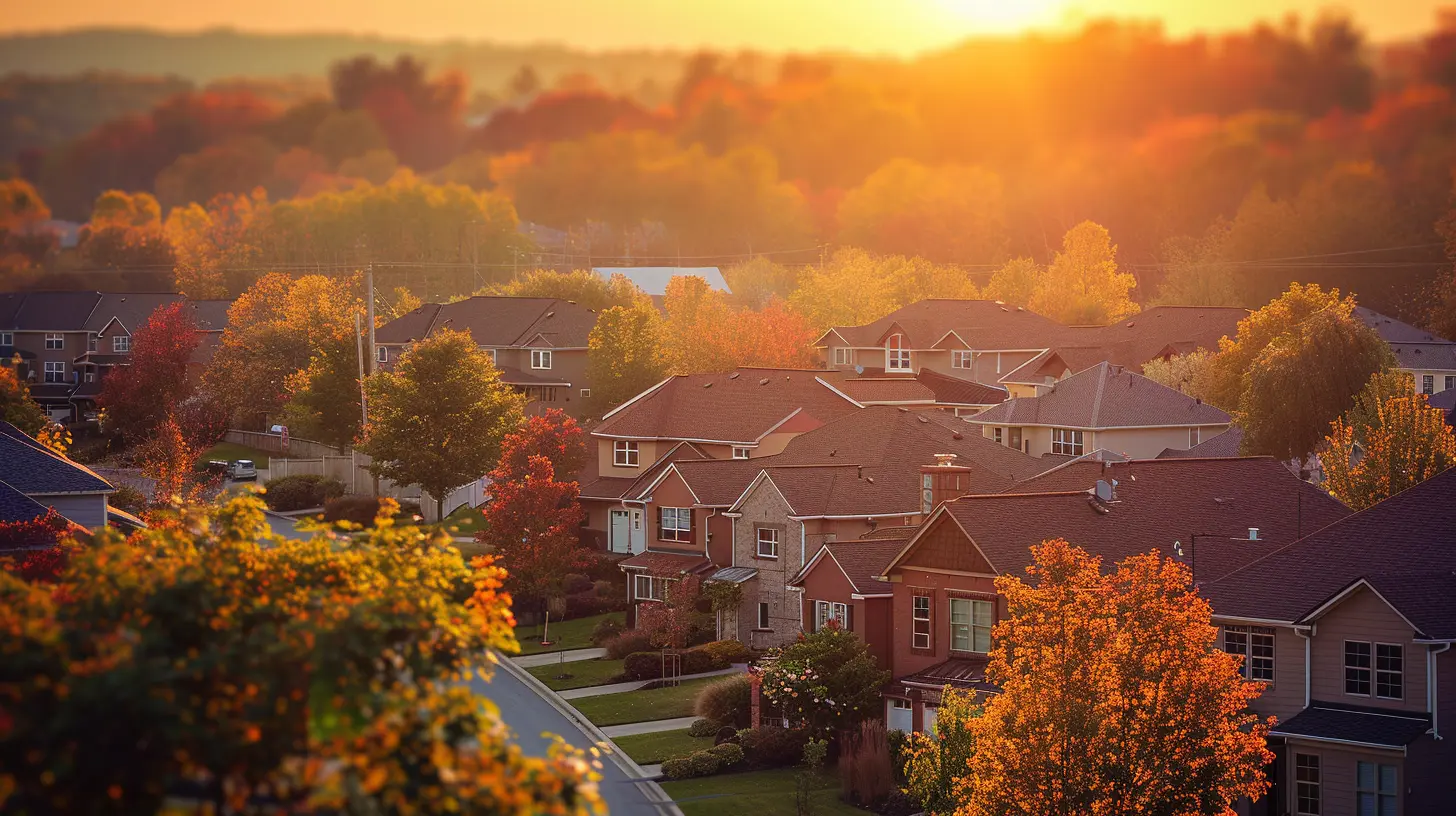
Why Are People Leaving the Cities?
Over the last few years, there’s been a noticeable migration out of urban centers. Why? Well, it’s like this: cities are expensive. From sky-high rent prices to inflated grocery bills and parking costs (if you’re lucky enough to find parking), city living can drain your wallet faster than you can say “mortgage.”The pandemic also played a massive role in shifting priorities. Remote work became the new normal, and people started realizing they didn’t need to live within walking distance from their office anymore. Why pay thousands for a cramped apartment in the city when you could have a backyard and more square footage in the suburbs? It’s no surprise then that affordable housing in the suburbs has become a hot topic.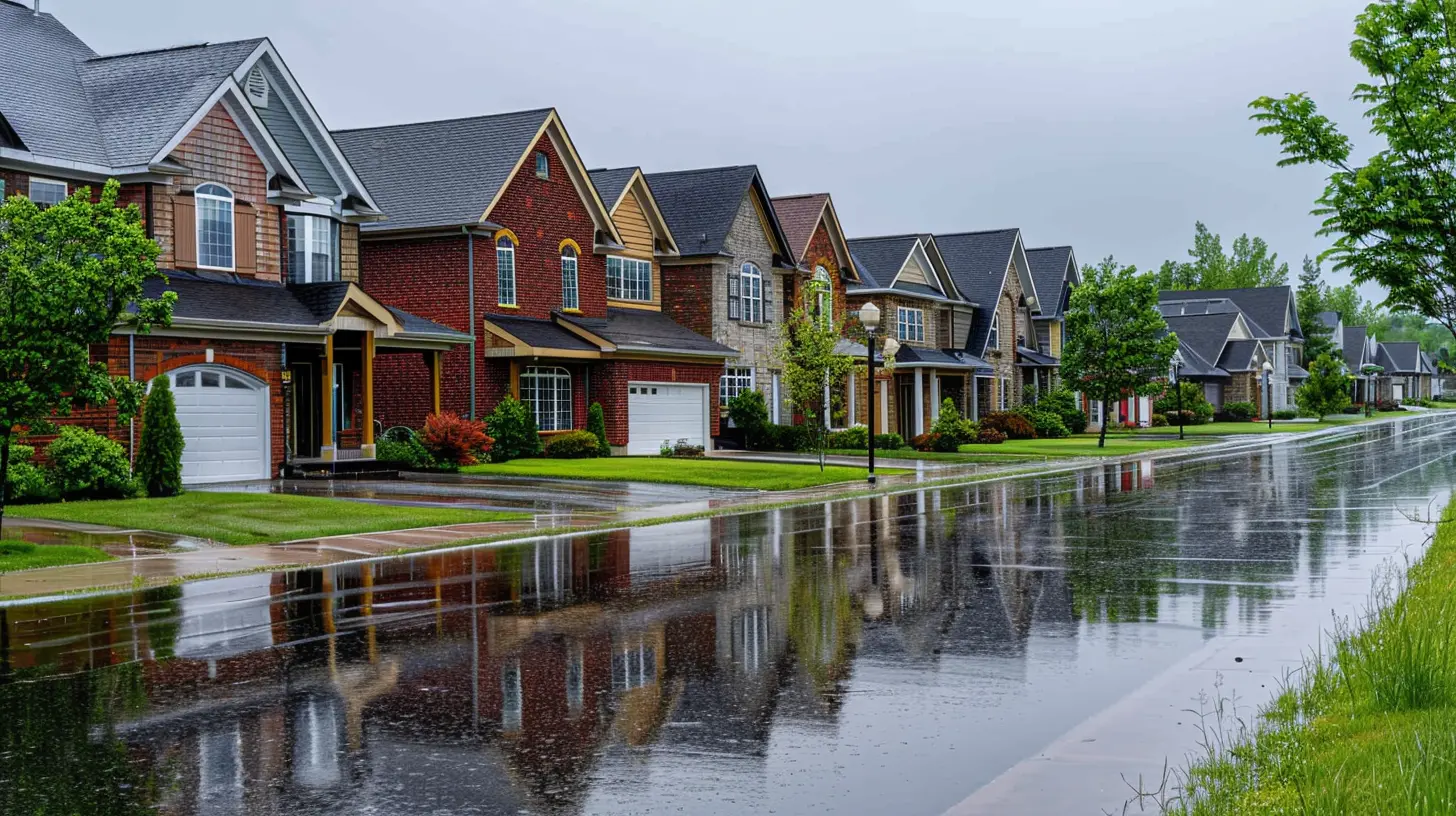
What Makes Housing Affordable in the Suburbs?
But let’s clarify something: just because it’s outside the city doesn’t automatically mean it’s cheap. So, what makes suburban housing more affordable?1. Lower Cost of Land
Land in cities is scarcer and comes at a premium. Suburbs, on the other hand, typically have more land to go around, which helps drive down costs. Developers can build properties with larger yards and more space, all while keeping prices relatively reasonable.2. Property Taxes & Utilities
In many suburban areas, property taxes tend to be lower than those in metropolitan hubs. You’re also likely to save on utilities. For instance, heating and cooling a condo in the city might cost just as much—or even more—than a slightly larger home in the 'burbs.3. More Bang for Your Buck
In urban areas, you’re often paying for the location more than the home itself. A studio apartment downtown might cost as much as a three-bedroom house 30 minutes outside the city. The farther out you go, the more space, modern amenities, and flexibility you might find.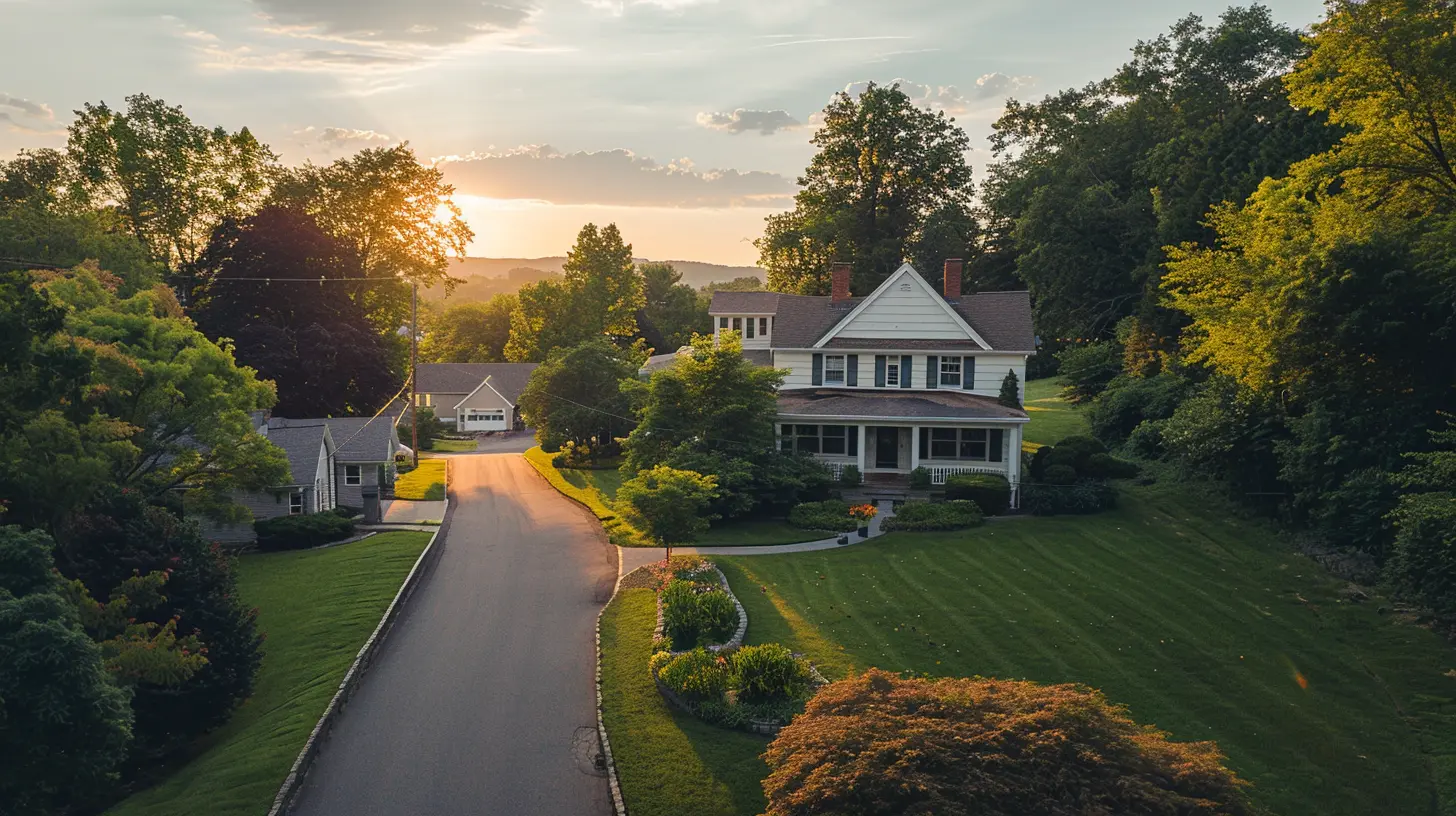
Pros of Suburban Living for Affordable Housing
If you’re seriously considering the suburbs, you probably want to know: what’s in it for me? Spoiler alert: a lot.1. Bigger Spaces – Finally, Room to Breathe!
Let’s be real—city living often means sacrificing space. Ever lived in a 500-square-foot apartment where your kitchen is a hop away from your bed? Not exactly dreamy, right? The suburbs offer families (and individuals) more square footage, which translates to more privacy, storage, and breathing room.2. Better Bang for Your Housing Buck
As I mentioned earlier, suburban homes generally offer better value. You could snag a spacious single-family home for what you’d pay for an urban condo. Imagine sipping your morning coffee on a full-blown patio rather than a tiny balcony overlooking a busy street.3. Lifestyle Perks
Want to know the best part about suburban life? Parking is plentiful (and free!), neighborhoods are quieter, and you might even make friends with your neighbors (gasp!). Plus, the schools in suburban areas often have better rankings, which is a win-win for families.
Cons of Suburban Affordable Housing
Of course, it’s not all sunshine and rainbows. Suburban living comes with its own set of considerations.1. Commute Times Can Be a Buzzkill
Unless you’re working remotely, living in the suburbs might mean trading in your short urban commute for a longer drive. And trust me, sitting in traffic is no one’s idea of fun.2. Accessibility to Amenities
One of the charms of city life is the convenience—need a coffee shop, grocery store, or gym? It’s probably a quick walk away. In the suburbs, you might need a car to get to, well, anywhere.3. Limited Public Transportation
Suburban areas tend to have fewer public transit options, meaning you'll likely need to rely on a car. Gas prices, maintenance, and the cost of owning a vehicle can add up.Is Suburban Affordable Housing Really… Affordable?
You’re probably wondering, “Okay, but is it actually worth it financially?” The short answer: It depends.Moving to the suburbs will require some financial planning. Yes, the cost of housing itself might be lower, but don’t forget about added expenses like transportation, increased utility bills, or even HOA fees if you're moving into a planned community. It’s important to look at the big picture rather than just the sticker price of the home.
Tips for Finding Affordable Housing in the Suburbs
Ready to start your search? Here are a few handy tips:1. Do Your Research
Not all suburbs are created equal. Some are more affordable, while others are just as pricey as the city. Scope out the areas where property values align with your budget.2. Work With a Local Real Estate Agent
Agents who know the area can steer you toward hidden gems and navigate the local market for you. They often know which neighborhoods are up-and-coming and where to find the best bang for your buck.3. Check for Additional Costs
Before you commit, consider things like property taxes, insurance, and commuting expenses. A house might seem affordable until you factor in the cost of driving an extra 30 miles each day.4. Look for New Builds
Sometimes, newly constructed homes in suburban developments are slightly more affordable due to builder incentives or financing plans. Plus, they’ll likely offer modern designs and energy-efficient features.The Future of Affordable Housing in the Suburbs
Affordable suburban housing is certainly an option, but it’s not without its challenges. As more people consider a move out of urban areas, suburban markets are becoming more competitive. Prices in many suburban neighborhoods are steadily climbing, which could eventually reduce affordability.However, initiatives like government-backed affordable housing programs and zoning reforms aimed at increasing housing supply may help balance the scales. There’s no denying that suburban areas will continue to grow as people seek alternatives to city living.
Final Thoughts: Should You Consider the Suburbs?
Ultimately, the decision to move to the suburbs hinges on your priorities. If you’re seeking more space, a quieter environment, and (potentially) lower housing costs, suburban living might be the perfect fit. But, it’s important to weigh the trade-offs, like commute times and accessibility to amenities.Think of it as a balancing act—what’s most important to you? If you’re ready to trade the hustle and bustle of the city for a slice of suburban serenity, affordable housing in the suburbs could absolutely be an option worth exploring.
all images in this post were generated using AI tools
Category:
Affordable HousingAuthor:

Vincent Clayton
Discussion
rate this article
19 comments
Noelle Willis
Affordable housing in the suburbs: where your dreams of a white-picket fence meet reality! Just remember, that charming view comes with the occasional raccoon stealing your recycling. It’s all part of the suburban charm!
March 29, 2025 at 3:52 AM

Vincent Clayton
Thanks for the comment! Suburban living offers a unique blend of charm and challenges, and it's important to weigh both when considering affordable housing options.
Wendy Clark
Great article! Affordable housing in the suburbs is a crucial discussion. Exploring innovative solutions and community partnerships can make it a viable option for families seeking better living conditions.
March 23, 2025 at 8:59 PM

Vincent Clayton
Thank you! I completely agree—innovative solutions and strong community partnerships are key to making affordable housing in the suburbs a reality for families.
Primrose Price
Affordable housing in the suburbs: where you can finally own a backyard without selling a kidney! Just remember, the only downside is the daily struggle between IKEA and your local diner for 'what's for dinner tonight!'
February 11, 2025 at 3:51 AM

Vincent Clayton
Exactly! Suburban living offers a balance of space and affordability, but navigating dining options can be a fun challenge!
Edward Cruz
This article sheds light on a pressing issue. Affordable housing in the suburbs presents both opportunities and challenges. While the potential for community improvement is exciting, we must consider infrastructure, sustainability, and community integration to ensure these developments positively impact both new and existing residents.
February 2, 2025 at 9:10 PM

Vincent Clayton
Thank you for your insightful comment! You highlight key factors that are essential for successful affordable housing developments. Balancing opportunities with thoughtful planning will be crucial for fostering vibrant, integrated communities.
Gunnar Cooper
Affordable housing in the suburbs? Sounds like a unicorn—magical, but where's the proof?
January 31, 2025 at 5:17 AM

Vincent Clayton
While it may seem elusive, several communities are successfully implementing affordable housing initiatives in suburban areas. Examples and case studies can provide the proof needed to see this vision become a reality.
Devin Martin
The rising demand for affordable housing in the suburbs presents both challenges and opportunities. Effective policies and innovative solutions are essential to ensure these areas remain accessible for diverse communities seeking quality living without breaking the bank.
January 27, 2025 at 1:37 PM

Vincent Clayton
Absolutely! Addressing affordable housing in the suburbs requires thoughtful policies and creative solutions to balance accessibility and quality of life for all communities.
Atlas McTigue
Hope blooms in suburbia, where dreams find a home within reach.
January 23, 2025 at 12:36 PM

Vincent Clayton
Thank you! It's inspiring to see how affordable housing can enable dreams to flourish in suburban communities.
George James
Exploring suburban affordability is essential for families.
January 18, 2025 at 9:05 PM

Vincent Clayton
Absolutely! Understanding suburban affordability is crucial for families seeking stable housing and a better quality of life.
Bianca Franklin
Affordable suburban housing: a balancing act of space vs. budget. Can we truly find harmony without sacrificing quality for cost?
January 16, 2025 at 4:47 AM

Vincent Clayton
Achieving harmony in affordable suburban housing requires innovative designs and strategic planning that prioritize both quality and cost without compromising the livability of the community.
Lorelei Underwood
Hopeful, but challenging realities.
January 12, 2025 at 4:46 AM

Vincent Clayton
Thank you for your comment! Indeed, while the hope for affordable housing exists, the challenges we face are significant and require concerted efforts to overcome.
Delia McDougal
Affordable housing: where the grass is greener and cheaper!
January 10, 2025 at 12:27 PM

Vincent Clayton
Thank you! Affordable housing can indeed create vibrant communities in the suburbs, making them an appealing option for many.
Shiloh Diaz
Thank you for shedding light on the crucial issue of affordable housing in the suburbs. It's heartening to see discussions that encourage community growth and accessibility, ensuring everyone can find a place they can truly call home.
January 10, 2025 at 5:19 AM

Vincent Clayton
Thank you for your thoughtful comment! I'm glad to see this important issue resonating with readers and sparking meaningful discussions.
Franklin McHugh
Affordable housing in the suburbs opens doors to new opportunities, creating vibrant communities where families can thrive and dreams can grow.
January 9, 2025 at 11:55 AM

Vincent Clayton
Absolutely! Affordable housing in the suburbs can indeed foster vibrant communities, providing families with the stability needed to pursue their dreams and contribute positively to their neighborhoods.
Thalor McCall
Affordable housing in the suburbs: where your dreams of a white picket fence meet the reality of budget-friendly living! Just watch out for rogue squirrels and surprise neighbors!" 🐿️🏡
January 8, 2025 at 7:31 PM

Vincent Clayton
Great point! Affordable suburban living can be a dream come true—just be ready for some unexpected quirks along the way! 🐿️🏡
Beatrix Robinson
Great insights! Affordable housing is crucial for families.
January 8, 2025 at 12:55 PM

Vincent Clayton
Thank you! I completely agree—affordable housing is essential for families to thrive in our communities.
Zia Malone
Great article! Exploring affordable housing in the suburbs is essential for fostering community growth. It's encouraging to see discussions around viable options that can benefit families and enhance neighborhoods!
January 8, 2025 at 5:03 AM

Vincent Clayton
Thank you! I appreciate your support and agree that affordable housing is key to enhancing suburban communities.
Clementine Cain
Great insights on affordable housing in the suburbs! Exploring innovative funding models and community partnerships could enhance accessibility for families. It’s crucial to balance development with sustainability and local needs to ensure that these housing options truly benefit the community. Looking forward to more discussions on this topic!
January 7, 2025 at 4:22 AM

Vincent Clayton
Thank you for your thoughtful comment! I completely agree—innovative funding and community partnerships are key to making affordable housing sustainable and beneficial for all. Let's keep the conversation going!
Izaak Holland
Absolutely! Affordable housing in the suburbs is not just a dream—it’s a growing reality! With a bit of research and creativity, you can find the perfect cozy spot!
January 6, 2025 at 7:37 PM

Vincent Clayton
Thank you! It's encouraging to see that with some effort, affordable options are becoming more accessible in suburban areas.
Seraphine O'Brien
Exploring affordable housing in the suburbs opens doors to new possibilities! It’s a chance for families to thrive in vibrant communities, where spacious living meets accessibility. Let’s embrace innovative solutions that create homes for everyone, fostering connection and growth in our neighborhoods. The future looks bright!
January 6, 2025 at 12:52 PM

Vincent Clayton
Thank you for your insightful comment! I completely agree that affordable housing in the suburbs can foster vibrant communities and enhance the quality of life for families. Embracing innovative solutions is key to making this vision a reality.
MORE POSTS

How Market Trends Impact Multifamily Property Valuations
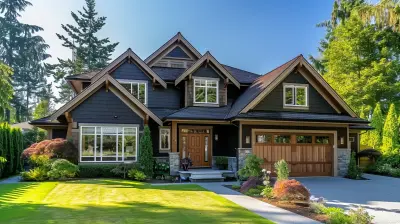
Understanding Capital Gains Tax When Selling Your Home

The Future of Smart Home Technology in Real Estate Investments

USDA Loans: Affordable Homeownership in Rural Areas

Optimizing Twilight Photography for Real Estate Listings

Attracting High-Quality Tenants for Your Multifamily Property

The Connection Between School Funding and Property Taxes

A Comprehensive Guide to Repaying a Reverse Mortgage

The Role of Wide-Angle Lenses in Real Estate Photography

Property Taxes on Rental Properties: What Every Landlord Should Know

Creative Ways to Boost Tenant Retention in Commercial Properties
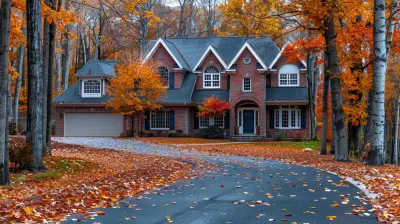
Investment Properties and Property Tax: What Investors Should Know